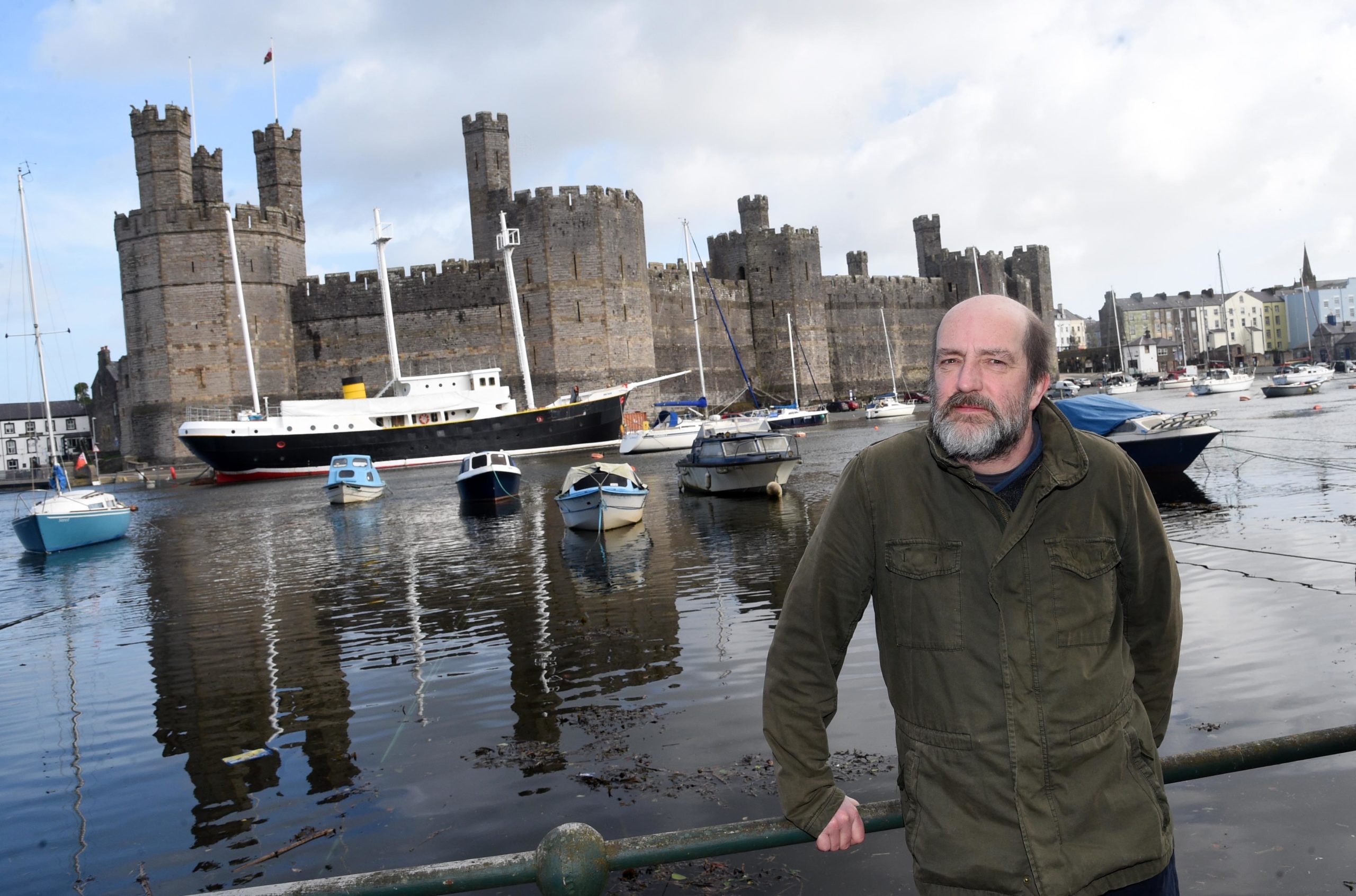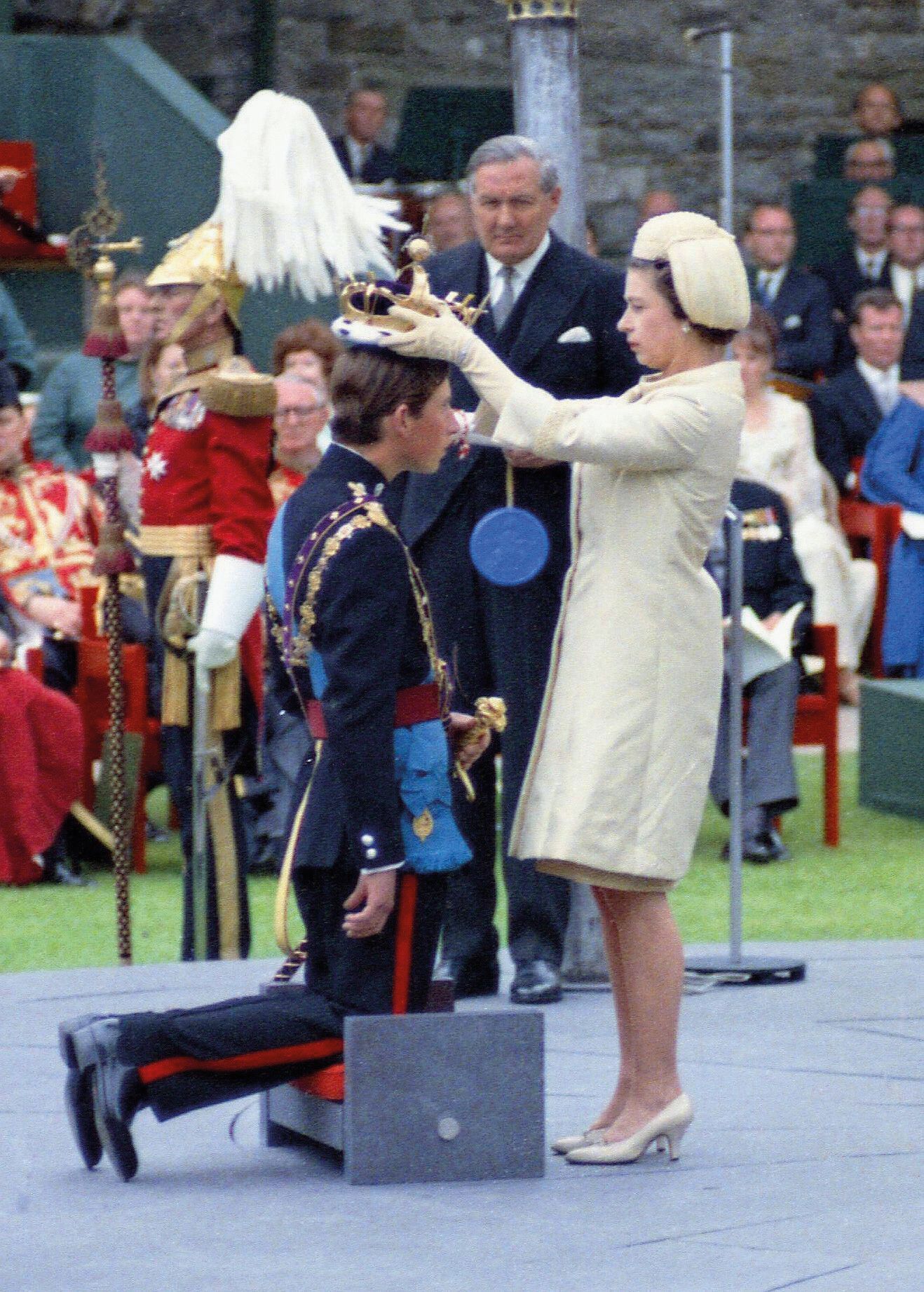Royal Family branded “fragile and malleable” in new book by Welsh author

The role of the Royal Family in modern society has been questioned in a new book which branded the royals as a “markedly fragile and malleable institution” caught up in “constant controversies”.
The claims have been made in a new book called Charles and the Welsh Revolt by author, Arwel Vittle, from Caernarfon, in north Wales, who delves into the history and backlash against the Prince of Wales title and the explosive start to the King’s royal career during his Caernarfon investiture in 1969.
The book also details the family fall-out from Prince Andrew’s links with Jeffrey Epstein to the “racist attitudes” towards Prince Harry’s wife, Meghan Markle and how former Commonwealth nations are “moving on.”
With the King’s coronation looming, Vittle predicts any celebrations in Wales will be “muted and superficial to say the least.”

Controversies
He writes: “As they move forward through the 21st century, the former nations of the Commonwealth are loosening their ties with the British monarchy.
“Barbados became a republic in 2021…More recently, during William and Kate’s disastrous tour of the Caribbean in 2022, the Jamaican Prime Minister informed Prince William personally on live television that his nation was ‘moving on’, and intended ‘to attain in short order… our destiny as an independent, developed and prosperous country.’
“Outside the UK, the tide of history would appear to be running against the British Crown, with 36 of the 56 members of the Commonwealth already republics.”
Vittle continues: “Even in the United Kingdom, things are not as rosy as they could be. Constant controversies bedevil the Windsors– ranging from Prince Andrew’s links with the Jeffrey Epstein paedophile ring to ‘cash for honours’ allegations involving Charles’ charity, The Prince’s Foundation.
“Added to that are the strained relations between Charles and his second son, Harry, and the continuing controversy of racist attitudes within the Royal Family, particularly towards Harry’s wife Meghan.”

“Fragile”
Vittle quotes legal commentator, David Allen Green describing the British monarchy as a “markedly fragile and malleable institution – notwithstanding its familiarity and durability.”
Green notes, when the Queen was born in 1926, her grandfather Edward VII was King of both Great Britain and Ireland, as well as Emperor of India and elsewhere, but over her lifetime 26 counties of Ireland became a republic and the empire morphed into a “commonwealth.”
“To a certain extent, then,” says Vittle, “it could be said that the Royal Family is fighting a rearguard action to maintain its relevance and validity”.
Even in Wales, it appears that support for the monarchy is not as deeply rooted as previously thought, Vittle claims.
A survey conducted on the eve of the Queen’s Platinum Jubilee on attitudes in Wales towards the monarchy revealed a significant divide in attitudes based on identity and language, with a relationship between supporting the principle of monarchy and national identity.
Following the Queen’s death, Charles moved swiftly to proclaim William as the new Prince of Wales which sparked an angry response amongst Welsh nationalists and republicans, echoing the reaction to the 1969 Investiture.
In October 2022, Gwynedd councillors voted by an overwhelming majority against an investiture for Prince William, and also in favour of the Prince of Wales title itself being abolished.
“Welshness”
Professor Richard Wyn Jones, of the Wales Governance Centre, believes that something significant has changed in terms of the relationship between Welshness and the monarchy.
“Bonds of loyalty have loosened significantly and the relationship with the Royal Family has become much more distant since 1969.
“A phenomenon which, according to Jones, signifies that the grip of royalty is slowly ‘constricting, if you like, to the British core – or, the Anglo-British core – of the state’.
“This could be exacerbated in coming years, now that the Queen has died and Charles has ascended to the throne.”
Vittle, who tells the story with first hand contributions from protestors, activists and journalists who covered the events of 1969, casts doubt on the Royal Family’s relevance to Wales.
He said “I wanted to write a popular history book which was a good read as well as informing, giving readers a real sense of what it was like to be part of that period.
“It was a febrile time not only with a sustained bombing campaign, but also Cymdeithas yr Iaith’s mass demonstrations and Plaid Cymru getting its first electoral successes. I wanted to look at what caused this extreme reaction around Charles’ Investiture, whether it was worth it, and whether it could all happen again.
“Now William’s investiture plans appear to be on the back burner after Charles’ announcement that he would be Prince of Wales, sparked a reaction in Wales that was perhaps more fierce than they expected.
“Muted”
“With the level of opposition, it looks like they’ve had second thoughts about having another grand investiture here.
“The gulf between the Royal Family and Wales was highlighted during the recent World Cup in Qatar, with uncertainty surrounding which football team Prince William was supporting, after the Prince of Wales had given the England team an enthusiastic send off, telling them, ‘The rest of the country is behind you, we are all rooting for you’.”
Commenting on King Charles’ forthcoming coronation, Vittle said: “There is a level of antagonism and ambivalence towards the Royal family within a significant section of Welsh society.
“I think they will be muted to say the least in their celebrations of the King’s coronation.”
Support our Nation today
For the price of a cup of coffee a month you can help us create an independent, not-for-profit, national news service for the people of Wales, by the people of Wales.







Good to see a clear analysis of this medieval institution being written and published at this time. It is probably worth remembering that, if I have remembered my history correctly, that royalty was restored after the Revolution on the grounds tht it could continue until Parliament decided that it had to stop. For me at least that time has now come.
A book worth a read… Great article.
Living in the USA I can say Rob McElhenney & Ryan Reynolds have done more in three years to raise the profile of, & educate Americans about Wales, than England’s Prince (Carlo or William) on Wales have ever done.